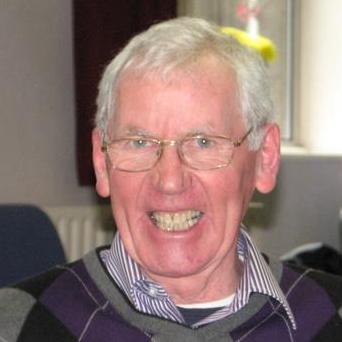New Evangelisation and the Universal Call to Holiness
Ireland, like many other Western countries that once had strong and vibrant Christian communities, is now in need of evangelisation. The Universal Church has put New Evangelisation at the core of her concerns and actions. Pope Francis states, ‘In fidelity to the example of the Master, it is vitally important for the Church today to go forth and preach the Gospel to all: to all places, on all occasions, without hesitation, reluctance or fear. The joy of the Gospel is for all people: no one can be excluded’ (Evangelii Gaudium 23). In stating this, the Pope is giving strong and clear leadership to our Church regarding evangelisation. He is not allowing us to stay in our own comfort zone and leave large sections of society untouched by the Gospel. It is also important to note what the Holy Father said in relation to Church: ‘Being Church means being God’s people, in accordance with the great plan of his fatherly love. […] It means proclaiming and bringing God’s salvation into our world, which often goes astray and needs to be encouraged, given hope and strengthened on the way. The Church must be a place of mercy freely given, where everyone can feel welcomed, loved, forgiven and encouraged to live the good life of the Gospel’ (Evangelii Gaudium 114). What a beautiful and wonderful vision is contained in those words. The task of all missionary disciples, but in particular, members of the Union of Catholic Apostolate, is to help everyone we encounter to experience and be part of the community that is this Church. However, if this vision is to be realised, a transformation must take place so that authentic humility and contemplation will be the outstanding attributes of God’s people.
It is also important to acknowledge, at all times, that our transformation or conversion can only happen with the help of the Holy Spirit. It is by the grace of God that we respond to the love that God has lavished upon us. We are called to proclaim the Word and to sow seeds, but it is the Spirit who acts once the seed is sown (Mk 4:26-29). To quote Pope Francis, ‘God’s word is unpredictable in its power. […] The Church has to accept this unruly freedom of the word, which accomplishes what it wills in ways that surpass our calculations and ways of thinking’ (Evangelii Gaudium 22). In order to allow God to surprise us and to be open to his work, in ourselves and in others, we need to prepare our own hearts by becoming closer to Jesus and to his Word.
We must not allow the sheer enormity of the task to paralyse us into inaction. Rather, all big ideas are accomplished by a series of small steps right down to the power of one of these. I believe that this is how God’s plan for us is worked out over time. The mission of the Universal Church is also the mission of the local and domestic Church. The task of evangelisation is not confined to bishops, priests and religious. It is the work of the whole church, the whole People of God.
The Universal Call to Holiness
Our God is a good and generous God as we see in the parable of the Labourers in the Vineyard (Mt 20:3-4): “Going out about the third hour he saw others standing idle in the market place and said to them ‘You go into my vineyard too’. This call is as vibrant today as it was 2,000 years ago, and was re-echoed by Vatican Council II and again in Christifideles Laici. It is addressed not only to the clergy and religious but to every baptised person. Each one of us receives from God a vocation and a mission to enter into collaboration for the good of the Church and of the whole world. In founding the Union of Catholic Apostolate, St. Vincent Pallotti realised the necessity of a structure to facilitate such collaboration in order to revive faith and re-kindle charity in our Church and in the world.
The first reaction of many lay people, myself included, when asked to become involved in evangelisation is to say, ‘I am not worthy or I am not holy enough to do this work’. But Jesus came to heal sinners and we are all sinners. We are all human; we disappoint ourselves and others in many areas of life; we often fail to reach our potential; yet God always offers us another chance.
Reflecting on the life of St. Peter helps illumine God’s work in us and offers great encouragement to all. Peter was a layman whose first reaction to God’s call was, ‘Leave me, Lord; I am a sinful man’. But Jesus said ‘Do not be afraid’ (Lk 5:8-10). Peter shows his determination when he attempts to walk on water, but immediately falls back once more into fear (Mt 14:8-32). Later on, Jesus tells him that he is an obstacle to God’s plan of salvation, because he fails to understand that suffering is part of Christ’s mission (Mt 16:23). Peter is also challenged by the infinite mercy of God and the call to imitate him in his boundless forgiveness (Mt 18:21-22) as he tries to get to grips with the far-reaching implications of being a follower of Jesus.
Finally, all of Peter’s human weaknesses and emotions come to the surface in Mt 26: 33-69. His great courage and loyalty are shown during the arrest of Jesus. His failures and weakness are demonstrated by his inability to stay awake and pray in the Garden and above all by his denial of Jesus in order to save himself. These are all very human and natural traits. Yet God used his weakness and past failures to transform Peter. In responding to the Universal Call to Holiness each one of us ought to be inspired by the extraordinary transformation of Peter, through the power of God, into the great leader and martyr that he became.
If new evangelisation is to be realised it will not be through mere words, but by the quality of our witness in our local faith communities and parishes. The process of evangelisation will happen quickly if every person we encounter in our daily lives and work feels welcomed, loved, forgiven and encouraged as Pope Francis recommends. Our task locally is to help people to become aware or more aware of God’s presence in our world. A world where many people have lost a sense of mystery – where God and religion are being pushed out. A real awakening to a sense of the sacred is necessary if new evangelisation is to succeed. A greater awareness or sense of God’s presence is needed if people are to respond to the universal call to holiness and act on their vocation.
I have often spent time with young people exploring four lines of a poem by Elizabeth Barrett Browning:
‘Earth’s crammed with heaven,
And every common bush afire with God,
But only he who sees takes off his shoes;
The rest sit round and pluck blackberries’
My two and half year old granddaughter’s world is full of mystery and wonder which she has no difficulty in embracing wholeheartedly. What happens to us as we get older? Do we lose our sense of mystery? Do we settle for knowing how things work without ever asking why? Do we lose that sense that there is always ‘more’? If we do, we have become berry-pickers and we are in urgent need of being awakened to a sense of having come from God and of returning to God. Richard Rohr says that we ‘cannot attain the presence of God because we are already totally in the presence of God. What is absent is awareness’ (‘Everything Belongs’). In trying to bring about an awakening to the Spirit or a greater awareness of God’s presence we may discover that actions speak louder than words. How we relate to each other may well hold the key.
This focus on relationships is important because it is through relationships that God’s love, mercy, joy and forgiveness will be encountered and experienced. This is the real challenge that Christ puts before all of his followers. ‘It is easier to immerse ourselves in doing a thousand things or getting involved in various causes, especially if we can connect them to the Gospel, than to attend to relationships; because relating to people demands a certain degree of trust, openness and vulnerability, which can cause some discomfort’ (From a talk given by Rev. Ruth Patterson). Yet this is precisely what we will have to do in order to be missionary disciples. Jesus gave us a perfect template in the way he revealed the Kingdom of God through word, action and table fellowship.
In John 4:5-30, the encounter between Jesus and the Samaritan woman at the well is a very good example of the Master at work. Jesus is humble and asks for a drink of water. He spends time with her, they discuss her life, he listens and he offers something of great value. It is in the dialogue that she recognises who he is. After the encounter with Jesus, the woman immediately becomes a missionary and, as a result, many Samaritans came to believe in him because of her testimony. If we are to be effective in evangelising our neighbour, we will first of all ourselves need to have encountered the risen Lord in a deeply personal and life-changing way.
If our communities, parishes and homes are truly places where God’s loving presence can be encountered, where his Word is broken open and shared, where his actions are experienced and his table fellowship is offered and real, then we can say we are wholeheartedly engaged with New Evangelisation and beginning to make the vision behind the Universal Call to Holiness a reality.
Questions for personal and/or group reflection:
- Can you remember a particular time in your life when you experienced God’s call to holiness in a more deeply personal way than before?
- How has your experience of God’s call changed over the years? And your response to that call?
- What communities of faith have helped you to nourish and deepen and respond to that call in relationship with others? Your family? Your parish and diocesan family? The Union of Catholic Apostolate? Other groups? The Universal Church?
- In what ways are you, in your local UAC group or another faith community, involved in discerning the signs of the times and the needs of those around you and in responding to them as apostles of the Infinite Love of God through concrete practical initiatives?
Prayer:
Come Holy Spirit, burn away our selfishness and fill us with your love.
Come Holy Spirit, burn away our anxiety and fill us with your peace.
Come Holy Spirit, burn away our jealousy and fill us with your generosity.
Come Holy Spirit, burn away our anger and fill us with your forgiveness.
Come Holy Spirit, burn away our unbelief and fill us with a faith in Christ that transforms our lives.
Come Holy Spirit, burn away all that prevents us from hearing your call in the cry of the poor and from pouring out our lives in generous service of those who yearn for us to be for them living witnesses and missionary disciples of your Word, of your justice and peace, of your mercy and forgiveness, of your tenderness and compassion, of your goodness and truth, of your joy and simplicity, of your love. Amen.
(Adapted from a prayer given to me by the late Kevin Devlin RIP)
Pat Maguire,
Dublin, Ireland
____________________________________________________
Segretariato Generale, Unione dell’Apostolato Cattolico
Piazza San Vincenzo Pallotti 204, Roma, Italia uac@uniopal.org












